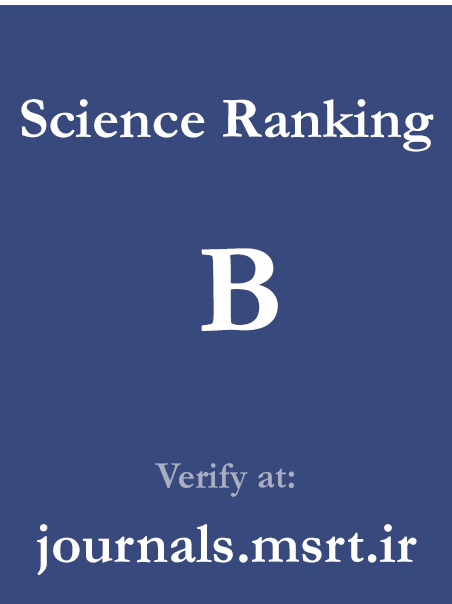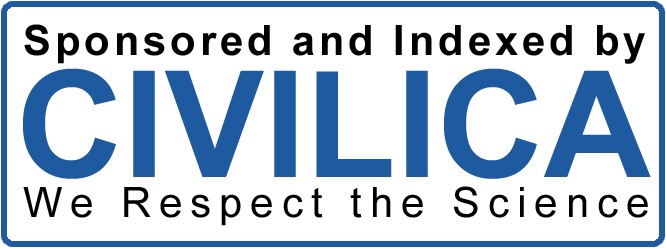Phenomenological Exploration of the Challenges and Strategies for Implementing the “Entrepreneurship and Production Workshop” Curriculum in Upper Secondary Education: Based on Teachers’ Lived Experiences
Abstract
This qualitative study, employing a phenomenological approach, examined the experiences of upper secondary theoretical school teachers in Tehran regarding the challenges and strategies for implementing the “Entrepreneurship and Production Workshop” curriculum. Data were collected through semi-structured interviews with 17 teachers selected purposefully and continued until theoretical saturation was achieved. The data were analyzed using inductive content analysis. Findings revealed that implementing this course faced significant challenges across five main dimensions: lack of teachers’ specialized and practical competencies in entrepreneurship education; infrastructural, financial, and technological limitations; weaknesses in teacher preparation and professional empowerment systems; misalignment between the textbook content and students’ real needs and environmental changes; and absence of effective linkages between schools, industry, and society. Furthermore, the teachers’ suggested strategies were analyzed at three levels: macro-level policymaking, structural and organizational reforms, and improvement of instructional processes. The results of this study emphasized the necessity for a comprehensive review of policies, content, human resources, and executive mechanisms. They also demonstrated that achieving the goal of fostering entrepreneurial competencies in schools is only possible through structural reforms and the utilization of cross-sectoral capacities.
Downloads
References
1. Yinka KR, Chidinma AE. Entrepreneurship among secondary school students: opportunities, challenges, and the role in fostering innovation. Soc Int J. 2025;9(1):27-33. doi: 10.15406/sij.2025.09.00411.
2. Block JH, Halberstadt J, Högsdal N, Kuckertz A, Neergaard H. The future of entrepreneurship education and training: Some propositions. Progress in entrepreneurship education and training. 2023;1. doi: 10.1007/978-3-031-28559-2_1.
3. Birdthistle N, Keane T, Linden T, Eager B. Back to school: an examination of teachers' knowledge and understanding of entrepreneurship education Enhancing Entrepreneurial Mindsets Through STEM Education: Springer International Publishing; 2023. 223-48 p.
4. Wei C, Wang S, Chen Y, Jiang Y. A study on the impact of entrepreneurship education on college students' employability. Journal of Education, Humanities and Social Sciences. 2023;8:1032-5. doi: 10.54097/ehss.v8i.4398.
5. Peschl H, Deng C, Larson N. Entrepreneurial thinking: A signature pedagogy for an uncertain 21st century. The International Journal of Management Education. 2020;19(1):Article 100427. doi: 10.1016/j.ijme.2020.100427.
6. Kirkley WW. Cultivating entrepreneurial behaviour: entrepreneurship education in secondary schools. Asia Pacific Journal of Innovation and Entrepreneurship. 2017;11(1):17-37. doi: 10.1108/APJIE-04-2017-018.
7. Taguma M, Barrera M. OECD future of education and skills 2030: Curriculum analysis. 2019.
8. Ornstein AC, Hunkins FP. Curriculum: Foundations, principles, and issues: Pearson Higher Ed; 2018.
9. Mehrmohammadi M. Curriculum: Perspectives, approaches, and outlooks: Astan Quds Razavi Press; 2017.
10. Ismail AB, Sawang S, Zolin R. Entrepreneurship education pedagogy: teacher-student-centred paradox. Education+ Training. 2018. doi: 10.1108/ET-07-2017-0106.
11. Ho CSM, Lu J, Bryant DA. The impact of teacher entrepreneurial behaviour: A timely investigation of an emerging phenomenon. Journal of Educational Administration. 2020;58(6):697-71. doi: 10.1108/JEA-08-2019-0140.
12. Huang Y, An L, Liu L, Zhuo Z, Wang P. Exploring factors link to teachers' competencies in entrepreneurship education. Frontiers in Psychology. 2020;11:563381. doi: 10.3389/fpsyg.2020.563381.
13. Li Z, Jiang B, Bi S, Feng J, Cui Q. Impact of different types of entrepreneurial alertness on entrepreneurial opportunities identification. Frontiers in Psychology. 2022;13:888756. doi: 10.3389/fpsyg.2022.888756.
14. Zhu R, Liu Z, Zhao G, Huang Z, Yu Q. The impact of institutional management on teacher entrepreneurship competency: The mediating role of entrepreneurial behaviour. The International Journal of Management Education. 2023;21(2):100794. doi: 10.1016/j.ijme.2023.100794.
15. Keshavarzi F, Javdani M, Badakhshan M. Designing a professional competency framework for entrepreneurial teachers. Educational Innovations. 2021;20(4):35-54.
16. Ranta M, Kruskopf M, Kortesalmi M, Kalmi P, Lonka K. Entrepreneurship as a Neglected Pitfall in Future Finnish Teachers' Readiness to Teach 21st Century Competencies and Financial Literacy: Expectancies, Values, and Capability. Education Sciences. 2022;12(7):463. doi: 10.3390/educsci12070463.
17. Yarmohammadzadeh P, Mahdiyoun R, Gholipour S. Identifying factors affecting the promotion of entrepreneurial culture in technical and vocational schools: A mixed-method approach. New Approach in Educational Management. 2019;10(38):35-55.
18. Shojaei AA, Arefi M, Fathi Vajargah K, Shams Morkani G, Arabi H, editors. Requirements and competencies of entrepreneurship-based curriculum. Proceedings of the First National Conference on Curriculum and Employment; 2020: Mashhad.
19. Ebrahimi P. Curriculum analysis of Work and Technology for the first secondary school based on the World Employment Organization's business skills: Kharazmi University; 2016.
20. Naderi N, Rezaei B, Soleimani M, Rostami S. Analysis of barriers to effective teaching of the "Entrepreneurship and Production Workshop" course in the second year of theoretical secondary school. Curriculum Studies. 2019;14(53):135-66.
21. Sunyoto S, Setiyawan A. Entrepreneurship Education in Vocational Schools in Indonesia Education at the Intersection of Globalization and Technology: IntechOpen; 2021. 1-15 p.
22. Gajri N, Mazidi M, Shamshiri B. Investigating and understanding key practical challenges and barriers in implementing the Fundamental Transformation Document with focus on its main subsystems. Curriculum Studies. 2020;10(1):1-33.
23. Musoke GG, Badru M. Educational Entrepreneurship (EE): Delineating and Highlighting Its Domain, Importance and Feasibility in Uganda's Context. Journal of Education and Learning (EduLearn). 2018;12(1):126-36. doi: 10.11591/edulearn.v12i1.6919.
24. Stagias E, Retalis S. Collaborative project-based learning in entrepreneurship education: A case study in secondary education. Education and Training. 2020;62(8):1201-14.
25. Wu X, Chen J, Liu T. Project-based learning and its effectiveness in teaching entrepreneurship at high school level. Journal of Business Education. 2020;32(5):521-30.
26. Tang X, Vezzani A, Eriksson A. Developing critical thinking, collective creativity skills and problem solving through playful design jams. Thinking Skills and Creativity. 2020;35:100625. doi: 10.1016/j.tsc.2020.100696.
27. Kanyankole IC. Examining Teacher's Perspectives on Implementation of Curriculum Change for Primary Education in Kinondoni Municipality: The Open University of Tanzania; 2019.
28. Bazargan A. Educational Assessment: SAMT; 2022.
29. Marulanda Valencia FÁ, Montoya Restrepo IA, Vélez Restrepo JM. The Individual and its Motivations in the Entrepreneurship Process. Revista Universidad y Empresa. 2019;21(36):149-74. doi: 10.12804/revistas.urosario.edu.co/empresa/a.6197.
30. Cacciotti G, Hayton JC, Mitchell JR, Allen DG. Entrepreneurial fear of failure: Scale development and validation. Journal of Business Venturing. 2020;35(5):106041. doi: 10.1016/j.jbusvent.2020.106041.
31. Neto R, Rodrigues VP, Polega M, Persons M. Career adaptability and entrepreneurial behaviour in the K-12 classroom. Teachers and Teaching. 2019;25(1):90-109. doi: 10.1080/13540602.2018.1526783.
32. Chux G. Entrepreneurship education, curriculum and lecturer-competency as antecedents of student entrepreneurial intention. The International Journal of Management Education. 2021;19(1):100295. doi: 10.1016/j.ijme.2019.03.007.
33. Hanson J. Exploring relationships between K-12 music educators' demographics, perceptions of intrapreneuring, and motivation at work. Journal of Research in Music Education. 2017;65(3):309-27. doi: 10.1177/0022429417722985.
34. Keyhani N, Kim MS. The aspiring teacher entrepreneur's competencies and challenges in an informal STEM environment. Entrepreneurship Education. 2020;3(4):363-91. doi: 10.1007/s41959-020-00030-8.
35. Mohamadpour A, Tourani H, Abdollahi B. Presenting a conceptual model for training entrepreneurial student teachers at Farhangian University. Management on Organizational Education Journal. 2020;9(2):323-46.
36. Akpomi ME, Ikpesu OC. Entrepreneurship in tertiary education. 2020.
37. Morselli D. How do Italian vocational teachers educate for a sense of initiative and entrepreneurship? Development and initial application of the SIE questionnaire. Education+ Training. 2018;60(7/8):800-18. doi: 10.1108/ET-03-2017-0046.
38. Nejat SJ, Khosravi Pour B, editors. Examining challenges and solutions for the development of educational entrepreneurship. Seventh National Conference on New Approaches in Education and Research; 2022: Mazandaran-Mahmoudabad.
39. Soltanzadeh V, Ardalan MR, Ghanbari S. Identifying factors affecting educational entrepreneurship in state universities. Innovation and Creativity in Humanities. 2020;10(1):209-44.
40. Olafisan OD, Adebisi TA. Awareness of entrepreneurial opportunities in courses of study among undergraduates of Obafemi Awolowo University Ile-Ife, Nigeria. Journal of Entrepreneurship Education. 2022;25(5):1-7.
41. Ahmed AAA, Ganapathy A. Creation of automated content with embedded artificial intelligence: a study on learning management system for educational entrepreneurship. Academy of Entrepreneurship Journal. 2021;27(3):1-10.
42. Sayavand Z, E'Lami F, Shams Morkani G. Identifying the educational entrepreneurship ecosystem, opportunities, and threats. Management on Organizational Education. 2020;9(1):309-31.
43. Shakeri Siahkamari S, Yarmohammadzadeh P, Yarigholi B. Identifying entrepreneurial teachers' mindset toward factors related to promoting entrepreneurship culture in schools. School Management Journal. 2018;6(2):243-63.
44. Farrell AA, Ashton J, Mapanga W, Joffe M, Chitha N, Beksinska M, et al. Consensus study on factors influencing the academic entrepreneur in a middle-income country's university enterprise. Journal of Entrepreneurship in Emerging Economies. 2023;16(5):1409-30. doi: 10.1108/JEEE-08-2022-0241.
45. Alipnah S. Study of teachers' experiences and perceptions of curriculum implementation: A case study of primary school programs in Marivan County: University of Kurdistan; 2018.
46. Jafarpour M, Hashemi SA, Mashinchi AA. Designing and validating an entrepreneurial curriculum model in secondary schools aligned with the general entrepreneurship policies of the system 2024.
47. Mohabpour S. Identifying characteristics of entrepreneurial teachers for entrepreneurship development in schools: Shahid Chamran University of Tehran; 2021.
Downloads
Published
Submitted
Revised
Accepted
Issue
Section
License
Copyright (c) 2025 Parisa Nouri (Author); Ali Akbar Sheikhi Fini; Hossein Zeinalipour, Seyyed Abdolvahab Samavi, Batool Sabzeh (Author)

This work is licensed under a Creative Commons Attribution-NonCommercial 4.0 International License.




